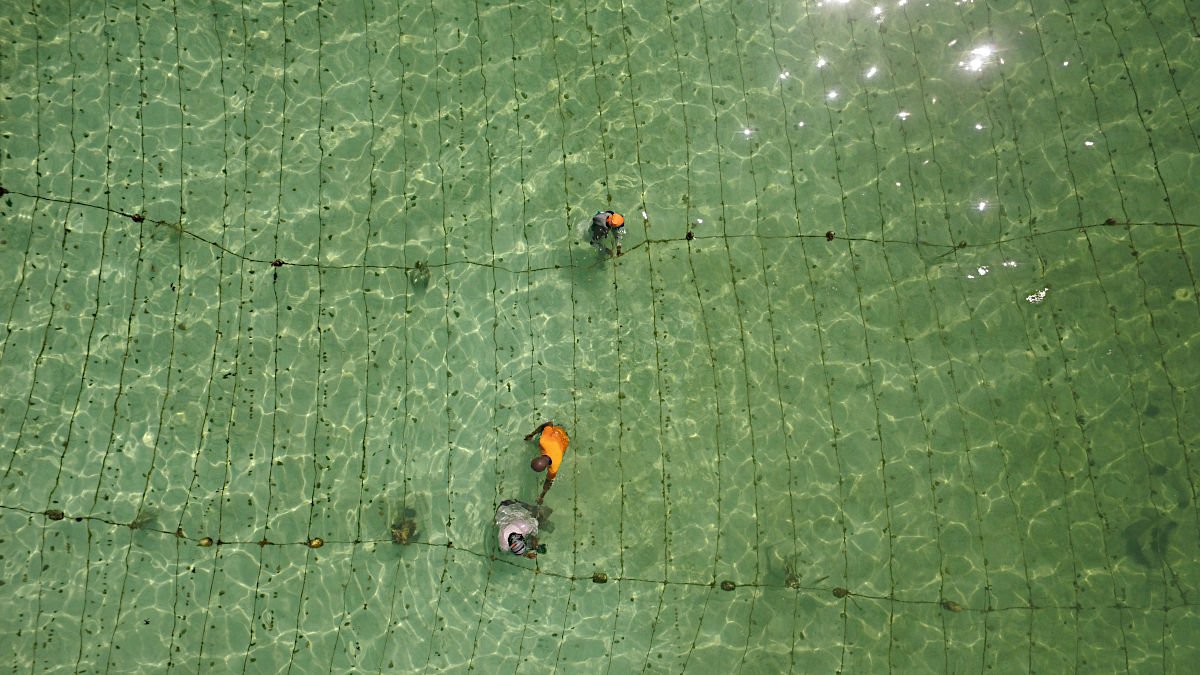Warming oceans forced women in Zanzibar to switch from seaweed to climate-resilient sponge farming to stay afloat.
About Sponge farming:
- Sponge farming is a relatively new business opportunity that does not harm the marine environment.
- A sponge is a living animal which is made of loosely arranged cells that surround a skeleton of fibres.
- The specialised cells nestled within thousands of tiny chambers act as microscopic pumps, and tirelessly drawing water into the sponge’s body with their whip-like tails.
- Sponges provide homes for many other animals, plants, and microorganisms. In many cases, they all work together in a mutual symbiotic relationship.
- Sea sponges exist in all oceans around the world and make up 20% of the global silicon biological sink.
- This unique pumping mechanism, which helps sponges extract nutrition and oxygen, also purifies the ocean water by removing impurities, including sewage.
- Uniqueness: Sponges, unlike seaweed, possess remarkable resilience to climate change, require minimal maintenance, and command premium market prices.
- Reproduction: Most sponges are hermaphrodites, harbouring both male and female reproductive organs, enabling them to self-propagate effortlessly.
- New sponges emerge from small buds that detach from the parent sponge and begin independent growth. Even damaged or fragmented sponges can regenerate into new individuals.
- This remarkable regenerative ability underpins the ease and feasibility of commercial sponge farming.
- Uses:
- These sponges are used for bathing and general hygiene because they are naturally antibacterial and antifungal and can resist odours.
- Research has also shown that the spongy creatures play an important role themselves in combating climate change.
- Their skeletons break down into microscopic pieces of silicon, which helps control the carbon cycle in the ocean and reduces the greenhouse effect.
- Dissolved silicon is critical for the growth of diatoms, tiny organisms which absorb large amounts of CO2 in the ocean using photosynthesis.




